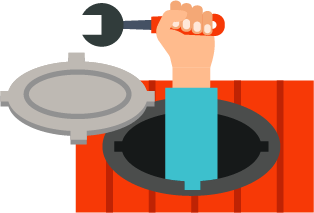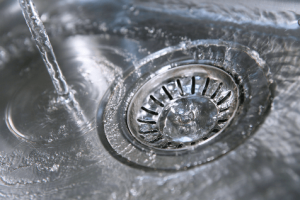“blocked drain maidstone ” – this is one of the most frequent phrases to be heard in town. It’s no wonder, considering Bath and North East Somerset sits on a geological stratum known as the “London Clay Belt”, which means that a blocked drain is an all too common occurrence!

For many people, getting a blocked drain is a real nightmare. But with some knowledge, you can at least stay calm when faced with such a problem. This guide will provide you with handy tips and advice on how to keep your drains running freely.
1. Cause of Blocked Drains
Before you start looking for any solutions, it is important to identify the cause of the blockage. Generally speaking, blocked drains are caused by either non-flushable items such as nappies and tissues being flushed down the toilet, or by a build-up of fat, grease, and other food particles washing down the sink. Knowing what has caused the blockage is essential for finding the right solution.
2. Prevention Is Better Than Cure
Your best defence against a blocked drain is prevention. To avoid blockages, make sure you dispose of waste items that can’t be flushed properly, such as nappies and kitchen waste. You should also take care not to let any fat and grease go down the drain, and invest in a wastewater filter if necessary.
3. Use a Plunger
If you suspect the drainage system is blocked, the first thing you should try is a plunger. This is an essential tool for anyone dealing with a blocked drain, as it helps unblock minor blockages. Simply submerge the plunger over the drain’s opening and pull and push it up and down vigorously. If the blockage isn’t too serious, this should do the job.
4. Unblocking Liquid
If the plunger doesn’t help, you may need to get a product designed specifically for clearing blocked drains. These are available from most hardware stores and supermarkets, and can be used to quickly unblock the drain. They usually contain strong chemicals, so use with caution and make sure to follow the manufacturer’s instructions.
5. Professional Help
In some cases, only a professional plumber can help you solve the problem. For example, if the blockage is too severe and you can’t locate the source of the problem, then there’s a good chance it requires specialist equipment and expertise. So if your DIY attempts don’t seem to be working, it’s time to hire a professional.
6. Invest in Regular Drain Maintenance
Regularly maintaining your drains can help reduce the chances of them becoming blocked in the future. Investing in a drain maintenance routine once every six months is a great way of ensuring your drains remain free-flowing, and helps to identify any problems before they escalate into costly repair or replacement projects.
7. Conclusion
Dealing with blocked drains can be a daunting experience. However, with the right knowledge and tools, you can quickly and easily fix the issue yourself. By keeping an eye on what goes down your drains, taking preventative measures, and investing in regular maintenance, you can avoid the hassle of having to deal with a blocked drain.

